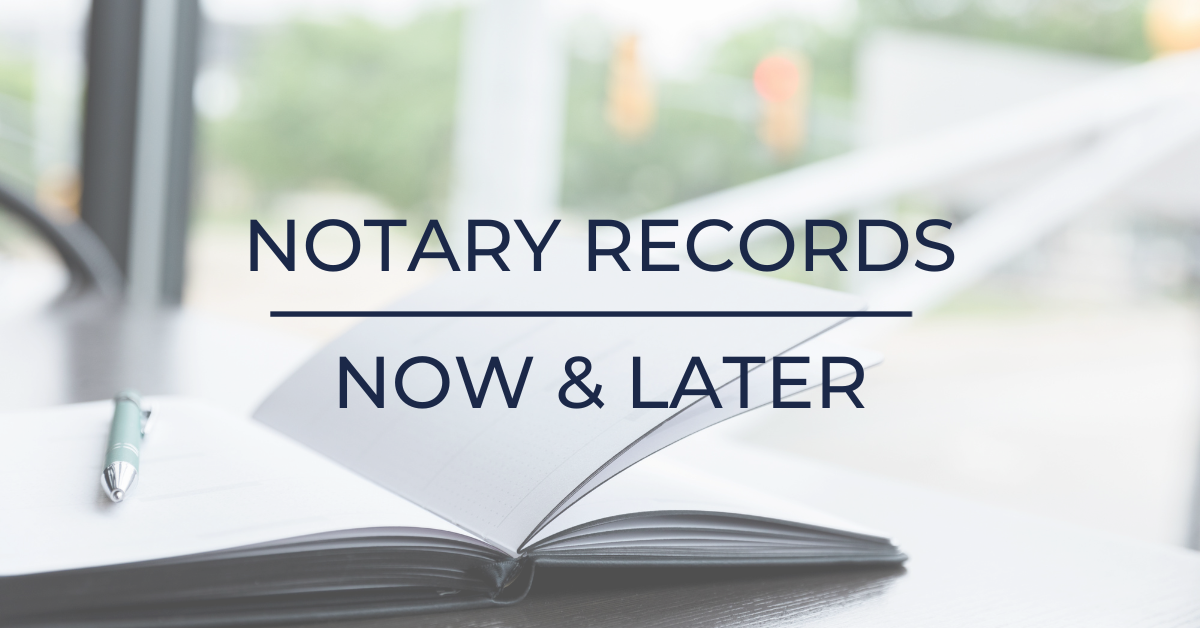Notary Public Underwriters Blog
Notary Records: "Now" and "Later"
- Details
- Published: February 22, 2021

Everyone knows that recordkeeping (journaling)—required in many states—is among the most strongly recommended notary public best practices.
State laws or widely accepted best practices dictate what the notary records in each entry. At a minimum, it's the name and address of the individual for whom a notarization was performed, the type of notarial act, the date, a description of the document requiring notarization, and the individual's signature.
When obtaining and using a record book, notaries generally devote their most careful consideration to "now" matters: choosing a desirable format and design; creating thorough entries; and doing both in compliance with applicable state-specific requirements.
There is, however, an essential "later" component of notarial recordkeeping. Without it, the purpose of recordkeeping is undermined and many notaries may find they have failed to fully comply with their state laws.
Secure, Safe Records Storage and Retention
Notarial records are a notary's only personally retained evidence of their official acts. A properly created record book entry is credible evidence of the facts of a notarial act performed. States that require recordkeeping may specify (in law or rules) a minimum retention period, or recommend one.
Notarial records cannot fulfill their purpose as evidence, however, unless they are (1) securely stored; and (2) safely retained.
Current, in-use record books should be under the notary's sole control and custody at all times. This means under lock and key or stored where only the notary may access the record book. (Exceptions can occur in state law or administrative rules addressing employee notary matters, so always review those.)
Completed (filled) record books should also be stored under the notary's sole control and custody. When choosing a storage location for bound (paper) record books, think carefully not only about security, but environmental safety. Notarial records are retained for years, since there is no time limit on questions or challenges to a document involving a notarial act. Moisture, paper's enemy, is silent and can ruin bound notarial records before it is noticed. Choose a secure, dry storage location that is free of insects and other pests, as they too can ruin paper records. Set a calendar reminder to periodically—at a minimum, once or twice a year—check the storage environment so you can relocate your records if conditions have become unsafe.
Finally, if the worst happens and your stored notarial records are compromised, perform a thorough damage assessment. Take photos showing the general damage, being careful to avoid capturing any entry details in those photos. Establish the date range of all record books or individual entries that were completely destroyed, meaning every page is unreadable. Discard only those completely destroyed books, keeping a record if possible of each book's entry date ranges. Store all partially damaged and undamaged records in a new location with fresh packaging. Follow any applicable state law or administrative rule that requires reporting of these circumstances to your state notary commissioning official.
If you have any questions regarding recordingkeeping, please call us, Notary Public Underwriters, your notary bonding agency. We are always happy to help. You can reach our notary service department at (800) 821-0831.
